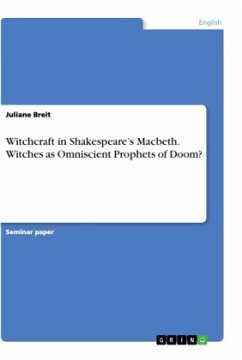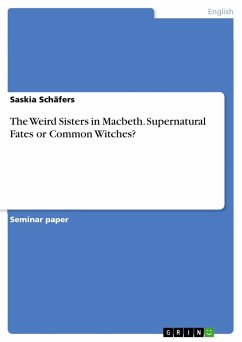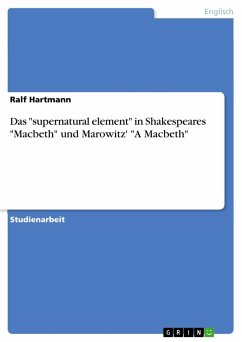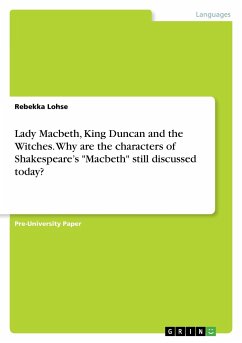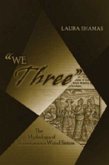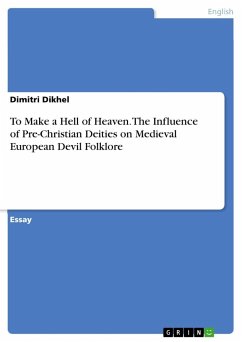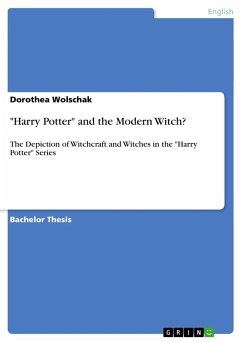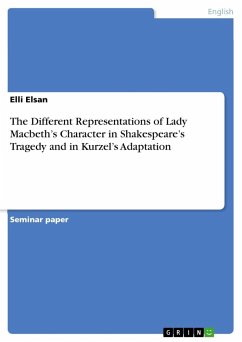Seminar paper from the year 2019 in the subject English Language and Literature Studies - Literature, grade: 2,0, University of Passau, course: Elizabethan Tragedies, language: English, abstract: This essay is dedicated to the influence of witchcraft and the power of prophecy of the witches in Shakespeare's Macbeth. First, before going in to the textual analysis of Macbeth it is important to explain the believe in the supernatural and in superstition in England, especially during the Jacobean era. Second, on the one hand the definition of witches must be discussed and on the other hand, the definition of prophecy in the context of the word "prophet".Chapter four explains the believe in witchcraft of James VI of Scotland and I of England and his measure of prohibition of sorcery regarding his witchcraft acts. The main part of this essay consists of the textual analysis of Macbeth concerning the so-called "Weird Sisters" and their goddess Hecate in the play. The analysis is chronologically divided into the three acts in which the witches appear: Act 1, Act 3 and Act 4. The opening scene shall explain the first apparition of the witches and their evil nature. This chapter is subdivided in their famous paradox line "Fair is foul, and foul is fair".Furthermore, their thirst for revenge shown by the metaphor of the fate of the "Tiger's" captain and his wife has to be compared to Macbeth. Afterwards, the first encounter of the witches and Macbeth shall be analysed. Act 3 depicts his growing insanity because of the murder on Banquo and discusses his ambition for the crown since he heard the prophecies of the "wayward" sisters. Here it is decisive to have a look at the banquet scene and the ghost of Banquo as a foreplay for the next apparition of the weird sisters in Act 4. Before that, the role of the mother-goddess Hecate has to be depicted. Finally, there is the "hell-broth" of the witches stirring Macbeth's subconsciousness and preparing the three apparitions for him.

